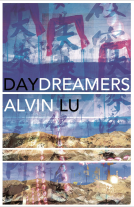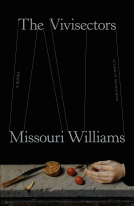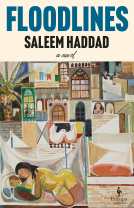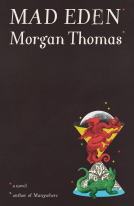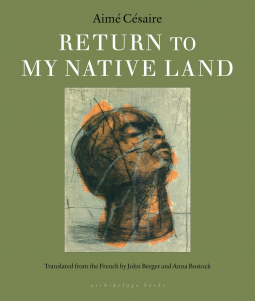
Return to my Native Land
by Aime Cesaire
This title was previously available on NetGalley and is now archived.
Send NetGalley books directly to your Kindle or Kindle app
1
To read on a Kindle or Kindle app, please add kindle@netgalley.com as an approved email address to receive files in your Amazon account. Click here for step-by-step instructions.
2
Also find your Kindle email address within your Amazon account, and enter it here.
Pub Date Jun 03 2014 | Archive Date Jun 03 2014
Steerforth Press | Archipelago
Description
More praise:
"The greatest living poet in the French language."--American Book Review
"Martinique poet Aime Cesaire is one of the few pure surrealists alive today. By this I mean that his work has never compromised its wild universe of double meanings, stretched syntax, and unexpected imagery. This long poem was written at the end of World War II and became an anthem for many blacks around the world. Eshleman and Smith have revised their original 1983 translations and given it additional power by presenting Cesaire's unique voice as testament to a world reduced in size by catastrophic events." --Bloomsbury Review
"Through his universal call for the respect of human dignity, consciousness and responsibility, he will remain a symbol of hope for all oppressed peoples." --Nicolas Sarkozy
"Evocative and thoughtful, touching on human aspiration far beyond the scale of its specific concerns with Cesaire's native land - Martinique." --The Times
Advance Praise
"Nothing less than the greatest lyrical monument of this time." --André Breton
""Aime Césaire's brooding exploration of Negritude bristles with the energetic, unique qualities of Walt Whitman's Song of Myself . . . [Césaire's] protean lyric, filled with historical allusions, serves to exorcise individual and collective self-hatreds engendered by the psychological trauma of slavery and its aftermath." --San Francisco Chronicle
"One of the most powerful French poets of the century." --New York Times Book Review
"Edouard Glissant once wrote that "everything begins with poetry." Aime Cesaire's epic poem was a true beginning in 1939. . . . Return to my Native Land became the rallying cry of decolonization but the fact that it is still read means it has survived as poetry. This translation preserves its poetic force and its reissue is a welcome event." --J. Michael Dash, New York University
More praise:
"The greatest living poet in the French language."--American Book Review
"Martinique poet Aime Cesaire is one of the few pure surrealists alive today. By this I mean that his work has never compromised its wild universe of double meanings, stretched syntax, and unexpected imagery. This long poem was written at the end of World War II and became an anthem for many blacks around the world. Eshleman and Smith have revised their original 1983 translations and given it additional power by presenting Cesaire's unique voice as testament to a world reduced in size by catastrophic events." --Bloomsbury Review
"Through his universal call for the respect of human dignity, consciousness and responsibility, he will remain a symbol of hope for all oppressed peoples." --Nicolas Sarkozy
"Evocative and thoughtful, touching on human aspiration far beyond the scale of its specific concerns with Cesaire's native land - Martinique." --The Times
Available Editions
| EDITION | Other Format |
| ISBN | 9781935744948 |
| PRICE | $16.00 (USD) |
Links
Average rating from 8 members
Featured Reviews
 Tamara D, Reviewer
Tamara D, Reviewer
An absolutely astounding poem. A must-read for any student or fan of poetry.
(Provided by publisher)
 Joseph S, Reviewer
Joseph S, Reviewer
Haiti where negritude rose to its feet for the first time and said it believed in its own humanity; and the comic little tail of Florida where they are just finishing strangling a negro; Africa gigantically caterpillaring as far as the Spanish foot of Europe; the nakedness of Africa where the scythe of Death swings wide.
Return to my Native Land by Aime Cesaire a single poem by the African activist. Cesaire was born in the French Caribbean country of Martinique. He earned a scholarship to Lycee Louis-le-Grand, created the literary review L'Etudiant Noir. Cesaire returned to Martinique in 1939 and taught at Lycee Schoelcher. One of his students would play an important role in the French colony of Algeria, Frantz Fanon. Cesaire played a role in his country's politics as a member of the Communist Party and later forming the Parti Progressiste Martinuqais.
Cesaire started writing Return to my Native Land (Cahier d'un retour au pays natal) in 1936 while while still in France. As a single poem it is rather long, but as a book it is short. Cesaire captures his feelings and emotions on returning to his home country after studying in France. Martinique is small. It covers 436 square miles and supports a population well under half a million people. Its history is typical of a Caribbean colony. Its native people were beaten down and expelled from the island. They are replaced with African slaves to work the new sugar plantations. The island changes hands from Spain in 1493 to the French in 1635, to the British during the Seven Years War and the Napoleonic Wars, and returned back to the French. The island suffered as a single commodity, sugar, economy which eventually lead to the freeing of the slaves in 1848. In 1946 Martinique became an Overseas Department of France and finally simply a department in 1974. It still relies heavily on French aid.
Cesaire was active in government and a communist for sometime. Some explanation communist is needed to understand exactly what it meant at the time. Countries like Martinique were under colonial rule and had little if any autonomy as a nation. There was also the much the same problems with the inhabitants of African descent after slavery ended, much the same as in the United States. The enlightened act of freeing the slaves was not followed up with assurances of liberty, equality, and fraternity. Cesaire makes this clear with the use of the derogatory term for a black man. Communism, as an ideal, took root in these environments. The promise of removing the yoke of colonial powers and the equality it promised all men was quite enticing. Here you have people who are being exploited and controlled by power thousands of miles away under a system called capitalism. To these people capitalism is not working so that simple leaves the alternative system. Their concerns are local and not exporting world wide revolution. They simply desired freedom.
Once you get a feel for the setting, which is very foreign for many, Cesaire's words take on new meanings and a cause. It is not difficult to see the similarity in Cesaire and Fanon. Their styles differ the sledgehammer of Fanon and the velvet hammer Cesaire, but both seek to find identity beyond colonialism. Cesaire write in a mix of prose and poetry all of it lyrical in rhythm and surreal. At times I felt as if I was on a raft in the ocean rocking on the rhythm and intensities of Cesaire's voice. The poem has a great feel to it that helps convey the pointed political and cultural messages. The lyrical feel reminded of reading the leaves of grass. You can lose yourself simply in the rhythm on the words. Here though, the message is as important as the art. Cesaire is more than just a voice calling for justice or the voice of protest. He is a French and captures that particular style that makes French poetry unique.
His literary style is classified as negritude a rejection of colonial racism and a term developed by Cesaire. He purposely chose to use the root Negre, the French equivalent to the American word “n*gger.” He took it as a proud title. Sarte said negritude is the Hegelian dialectic to racism. This is an interesting and unique look into colonial life and racism in a country other than America. Ceasaire writing is impressive. Berger and Bostock's translation seems to be spot on. Steerforth Press has done a great service re-releasing this translation. The only thing that would have made it better would be a more detailed introduction for those without the historical background.
Also posted on Good Reads: https://www.goodreads.com/review/show/791358968
 Educator 144982
Educator 144982
Wonderful! There should be more retranslated Cesaire available for all of us.
 Gail O, Reviewer
Gail O, Reviewer
Beauty in the form of a long poem. Her use of language is art at its best. My thanks to the author and NetGalley for a complimentary copy of this work.
 Andrija F, Educator
Andrija F, Educator
*Return to My Native Land* (originally *Cahier d'un retour au pays natal*) by Aimé Césaire is a seminal work of Caribbean literature and a foundational text in the Négritude movement. The poem is a powerful, lyrical exploration of colonialism, racism, and the search for identity. Césaire reflects on the experiences of black people in the Caribbean, addressing the impact of colonization on their culture and psyche. The work combines personal introspection with political critique, celebrating the resilience and strength of the African diaspora while condemning the injustices of colonial rule. Through its innovative use of language and form, Césaire's poem challenges readers to confront and reconsider their understanding of history, identity, and liberation.
Readers who liked this book also liked:
Cecilia Eudave
General Fiction (Adult), Literary Fiction, Multicultural Interest



